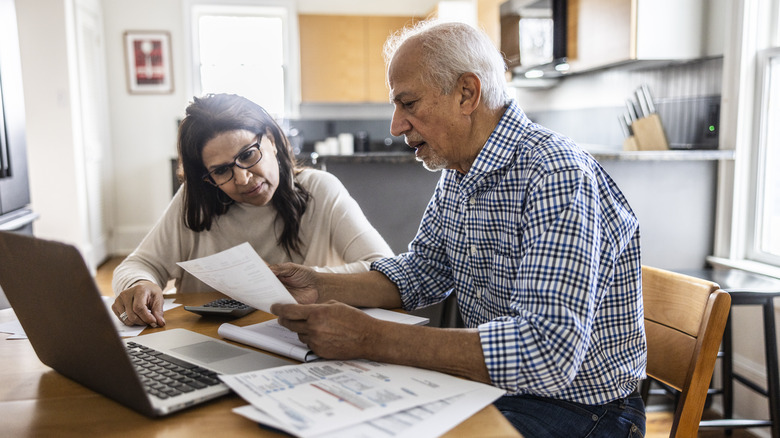The Emergency Fund Mistake People Near Retirement Should Avoid At All Costs
Stepping into retirement changes a lot of things, but surprises aren't one of them. Instead of paychecks, you might find yourself dependent on Social Security or dipping into your retirement savings. That's why you need an emergency fund that can keep things steady when the unexpected happens. If you think that once you stop working, then you don't need an emergency fund or you believe that with a fixed income plus good planning, you can manage all expenses, temember that life still loves to throw curveballs.
Unexpected costs like medical emergencies, major house repairs, or helping the family can quickly disrupt a budget. If retirees don't have an emergency fund, they might have to use their long-term investments or borrow money, which can risk their financial stability. Setting aside money for unexpected costs helps keep your financial plan stress-free. Besides, the pressure from unforeseen expenses can cause quick, often regrettable choices like selling investments at a loss or taking on high-interest loans, which by design, is not always a great option when one is desperate.
Retiring without emergency savings
Healthcare costs are a big worry for many. Medicare helps a bit, but it's not always enough. Think about unexpected dentist visits, new glasses, or even long-term care — these can all lead to hefty bills that pile up. Now, imagine your roof starts leaking or your AC goes kaput. That could mean shelling out thousands of dollars on the spot. Let's say a retiree is hit by a sudden medical crisis that requires surgery and long-term care. These are such hefty bills to pay and without any rainy day funds, the only option is to dip into their retirement savings. This move not only comes with penalties and taxes for early withdrawal, but also shrinks their future income. It's a tough spot, which is why financial pros always stress on the need to have some cash on hand for emergencies, so your nest egg stays intact.
Still, the reality is many people don't save enough for retirement, which can lead to big problems. Per Bankrate's Retirement Savings Survey for 2024, 22% of Americans haven't contributed to their retirement savings in 2023 and over 57% haven't met up with their savings plan. If you are in this category, you may need to trick yourself into saving more, because not having enough saved is the reason some retirees end up drowning in debt or needing help from family, which can make things tense at home. Have some cash on hand for emergencies, so your nest egg stays intact.
Managing emergency funds in retirement
Planning your emergency fund for retirement takes some careful thought. You need to make sure it's enough to cover your needs without locking up your money for no reason. Start by figuring out how much to stash away. Usually, it's smart to save about three to six months' worth of your basic living costs. But if you're retired and living on a fixed income, or if you have big healthcare costs or an old house that might need repairs, you might want to save a bit more — set aside enough for nine to 12 months. To calculate how much money you need, first figure out what you spend each month on things like rent, bills, food, insurance, and medical costs. Then, think about where your money comes from — like Social Security, pensions, or annuities — and how steady that money is.
Your emergency fund should cover any extra unexpected costs so that you don't have to use your long-term savings too soon. Also important is choosing the right place to keep your emergency funds. The focus should be on ease of access and safety. High-yield savings accounts are a common choice because they provide both liquidity and a small amount of interest. Money market accounts are another option, offering similar advantages with potentially slightly better returns. Avoid tying up emergency funds in volatile investments like stocks or long-term bonds.


